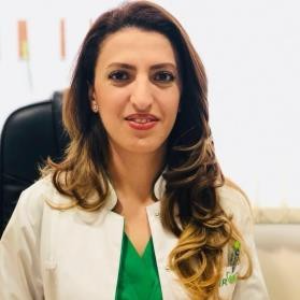Title : Development of a tablet- Based aphasia test in Armenian language
Abstract:
When working as a neurologist in Armenia I realized that, despite my efforts, I lacked the means to efficiently and effectively diagnose aphasia. Aphasia is a language disorder that impairs the expression and understanding of language as well as reading and writing, with a large impact on the patient’s quality of life. The used tests are pencil-and-paper questionnaires translated from Russian and that therefore often ignore important aspects of Armenian language and culture. I aim to develop and clinically validate a computerized Armenian aphasia test as it would signify a tremendous help to clinicians and therapists in Armenia and become an important stride in the treatment of aphasia in Armenia. As the test data will be accessible via internet for later consultation, the progression of patients in rehabilitation centers can be monitored, the efficiency of the proposed therapies evaluated, and the collected data used for clinical research. The Aachen Aphasia Test (AAT) is a routinely used pencil-and-paper test of language functioning after brain injury [2]. It aims to reliably identify the presence of aphasia, provide a profile of language functioning according to different language modalities (speaking, listening, reading, and writing), using different aspects of linguistic descriptions (phonology, morphology, semantics and syntax), and returns a measure of severity. I started with the format of AAT as it is also used at UZLeuven, KU Leuven’s university hospital. First, I developed a paper-based version that accounts for the cultural and linguistic aspects of the Armenian language. Also, instead of using line drawings, as is currently done in aphasia tests around Europe including AAT, I used enriched color images, which makes them more comprehensible for the targeted patient group.
A tablet-based version of the test enjoys a number of advantages over the paper-based one:
The ease and speed of testing patients as the paper-based AAT takes approximately 45-75 minutes to administer and scoring about 30-60 minutes. Using the tablet-based version, I expect to save minimally 30 minutes.
All testing results are uploaded on a password-protected secure server, accessible to licensed individuals:
The progression of a patient enrolled in a rehabilitation program.
The (future) possibility to enable the patient to track his/her own progression in the rehabilitation program.
The ability to test patients even in a bedridden condition, which is very important.
Psychological advantage: the patient will not see the scoring by the clinician (as in the case with the pencil and paper test), which in turn motivate him/her to fully concentrate on the test.
With a tablet it is easier and less expensive to use enriched images, which will render the test more comprehensible.
Automatic scoring facility, which is more objective.
Audience Take Away:
- Explain how the audience will be able to use what they learn?
- How will this help the audience in their job?
- Is this research that other faculty could use to expand their research or teaching
- Does this provide a practical solution to a problem that could simplify or make a designer’s job more efficient
- Will it improve the accuracy of a design, or provide new information to assist in a design problem?
List all other benefits:
- The development of a new, computerized aphasia test in Armenian language would be an important stride in the diagnosis and treatment of aphasia in Armenia, especially for rehabilitation medicine as it will enable the therapist to track the progression of the patient and judge the efficacy of the used rehabilitation program.
- The Armenian tablet-based version could serve as a prototype for the tablet based versions of aphasia tests in other languages.
- The whole process of test adaptation and translation to be published in the article can be helpful for later use.




